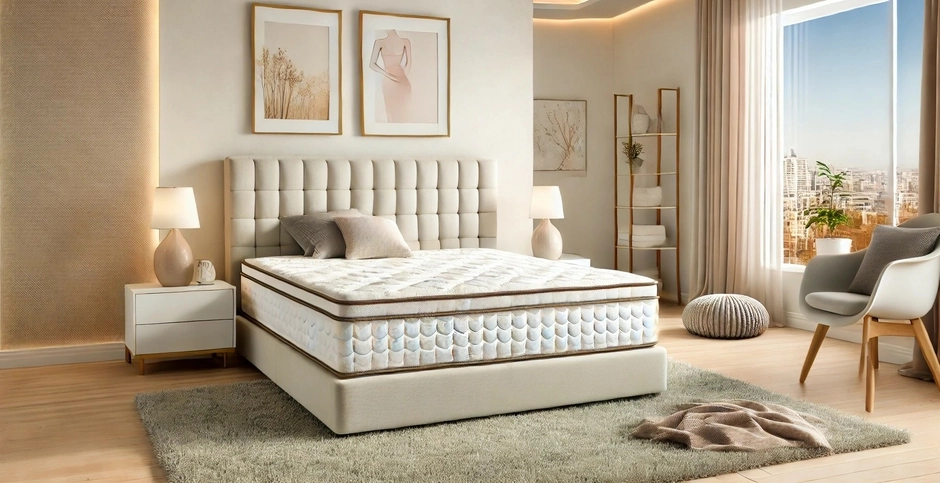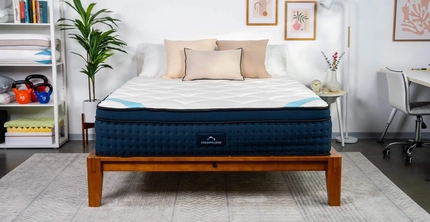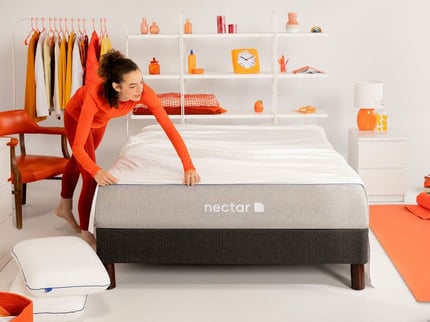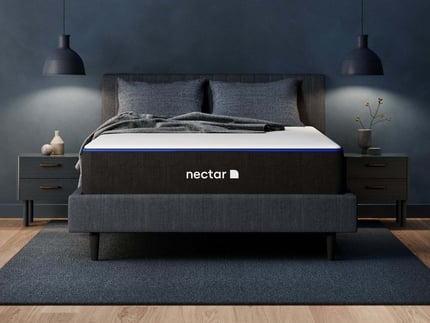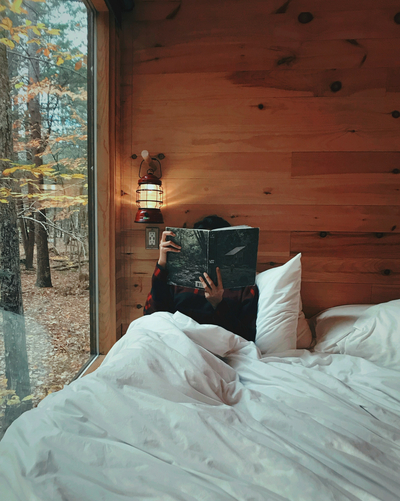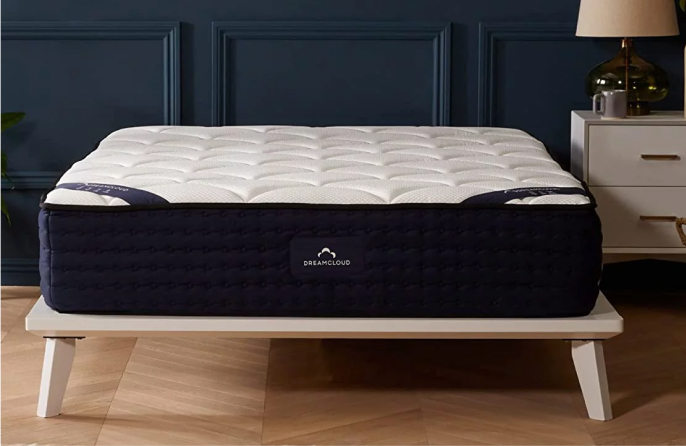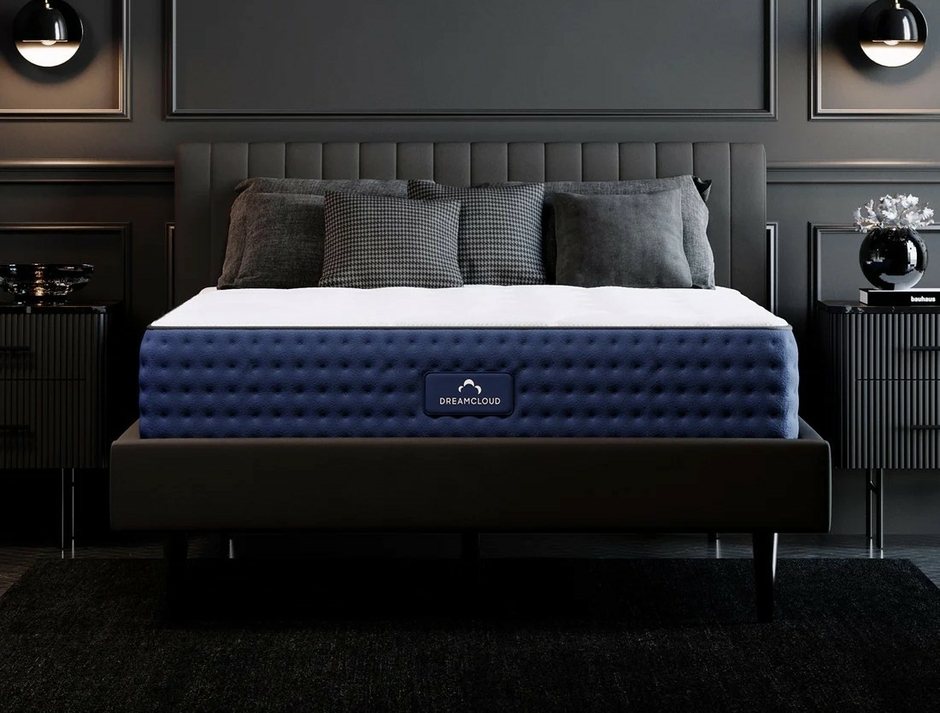What do Back Sleepers Want?
People who sleep on their backs prefer a mattress that cradles the head and neck and supports the shoulders, back, and waist to promote natural body alignment. The ideal mattress also needs to be soft enough to relieve pressure points.
Is Memory Foam the Best Mattress for Back Sleepers?
Lightweight to average-weight back sleepers (8-16 stone) often prefers memory foam thanks to its hugging feel and pressure-relieving cradle. Memory foam responds to body heat and weight to let an individual sleep on the mattress. This viscoelastic attribute means that the bed fills in the gaps between the spine to promote natural alignment. Another advantage of memory foam is its excellent motion isolation. Regarding its drawbacks, memory foam has an off-gassing smell, and it also sleeps hot for some people.
Innerspring mattresses
High-quality coil mattresses are another great option for back sleepers. These mattresses boast even support, which helps keep the spine straight. Compared to memory foam, a bonus feature of innerspring beds is their buoyant feel, so the midsection doesn't sink deeply into the mattress. As for cons, the springs in these beds lose tension over time, causing the mattress to sag.
Latex mattresses
Latex is relatively denser than memory foam, so it has less sink. This material boasts a buoyant quality that balances surface cushion and firmness. Like memory foam, it cradles your body while supporting the head, neck, back, and hips. The result is a mattress that combines pressure point relief with excellent body and spinal alignment. Natural latex is popular with individuals ready to spend a little more for a less toxic mattress that sleeps cooler.
